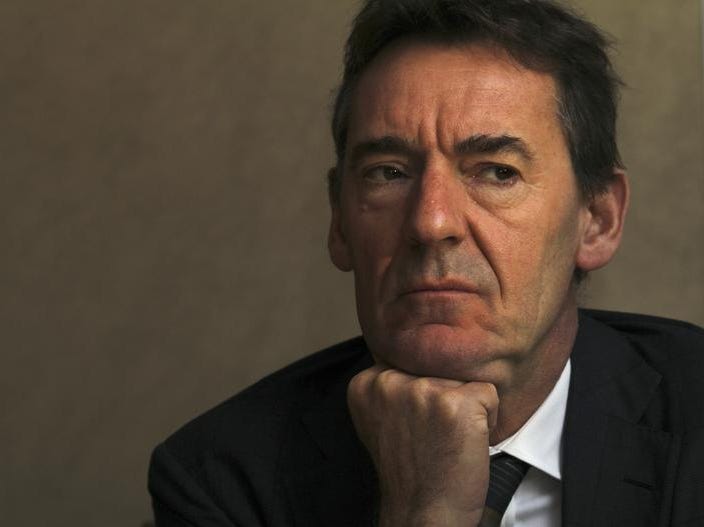- Ex-Goldman Sachs economist Jim O'Neill told CNBC he thinks the likelihood of a global recession is "touch and go".
- He said the Fed's tightening plan raises chances of a recession, and he'd back off it he were a policymaker.
- The coiner of BRICS criticized China's "aggressive" COVID-zero lockdowns, saying its recent data are a bad sign.
The likelihood of a global recession are "touch and go," economist Jim O'Neill told CNBC, as he criticized China's zer-COVID policy and the Federal Reserve's monetary-tightening plans over their risk to economic growth.
The former Goldman Sachs Asset Management chairman said the Fed's aggressive rate-hike policy increases the risk of a recession, in an interview with CNBC's "Squawk on the Street" on Tuesday.
"If the Fed keeps sticking to this seeming tightening for every meeting as far as we can see, and US financial conditions were to tighten a lot more, I think the chances of a recession around the world are higher," he said.
The US central bank has signaled it will likely raise interest rates by 50 basis points at its meetings in June and July, after making such a double-size increase in May, its biggest hike at one meeting in 22 years. It has also pledged to reduce its balance sheet by $9 trillion in assets, starting in June.
Investors have become worried that the Fed's moves could trigger a recession, with asset manager BlackRock seeing a growing risk. The central bank's chair, Jerome Powell, has indicated it will do whatever it takes to dampen US inflation, which is running at 40-year highs.
"If I were a voting member of the FOMC, if I'd been really hawkish a month ago, I think I'd be backing off a little bit right now," O'Neill said.
The economist said the situation had become tougher for central banks after Russia invaded Ukraine. Western sanctions against Moscow, such a US ban on oil imports, have led to supply issues that have pushed up prices for the likes of energy and food.
"Even before the Russian invasion, it seems to me where things will be going this year will be tough enough already, and this obviously puts another colossal spanner in the works," he said.
"They've got to figure out whether the deflationary shock from this vast price increase is bigger than the inflationary potential from it, coming on top of other things. It's not entirely clear to me right now which it is. So I don't envy them."
The coiner of BRICS also criticized China's zero-COVID policy, which has placed travel restrictions and lockdowns on major industrial cities.
China's economic growth has slowed, according to official data, which showed a sharp fall in activity in the past month. Beijing recently set its lowest growth target since 1991, at 5.5%.
"For the past 20 years, China has been the single biggest driver of the global economy. If that's a sign of what is going on during their lockdown, it's bad," O'Neill said.
Fitch Ratings this month further cut its forecast for China's GDP growth in 2022 further, to 4.3% from 4.8%, citing extensive disruption to the economy from tightening COVID-19 controls.
O'Neill said he thought he knew China after 35 years of following it and quite frequently correctly predicting the government's reaction. But the last two or three years, and in particular the COVID policy, have caused him to doubt that.
"They used to be good at risk management, the Chinese, in my opinion. But over the past three years, they seem to be almost creating more risks by their own decision making, that they then have to deal with," he said.
"It's very unlike the China of old. And I'm a bit baffled by it."
